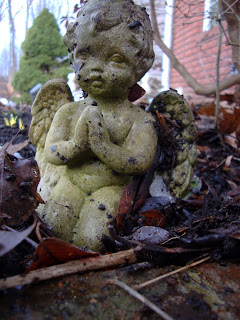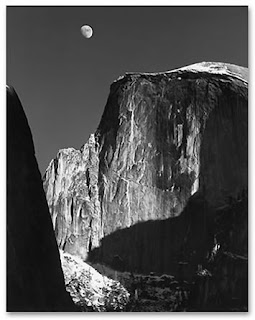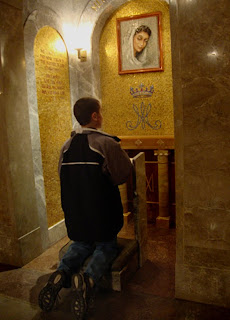Projects Left: Depth of Field, Perspective, Tilt Shift, Reflection
Depth of Field- For Depth of Field I have an idea to create a secret code in my pictures. My family constantly plays dominoes so I will have a domino in the foreground and a family member in the background or vice versa. The dots on the domino or dominoes will tell something about the person. The "decoder" will be a photograph of my Aunt Kelly's grave. She was the one who introduced dominoes to our family so I think this is very fitting. The domino will show the date of her death or birth (not sure yet) and the grave will read the same date.
Perspective- For perspective I plan on taking pictures of words and numbers from different angles. This is to show how crucial words are to our daily lives and how the same word may have a completely different impact on a person depending on his or her perspective.
Tilt Shift- I am not sure exactly how I plan on capturing tilt-shift. I want to do either people or cars because they would look cool as "models" but I'm not quite sue how to capture them yet.
Reflection- For reflection I want to photograph reflections of people doing something that defines or describes them. Therefore, that person would be both physically and mentally/emotionally reflected.
QUESTIONS:
1. Mr. Kraus could improve the class and my experience by showing more successful photography and describing why he finds it successful. Whether taken by students or real photographers this would be very helpful.
2.I can improve the class experience by allowing myself more time to travel places specifically to take pictures. Taking pictures of my everyday life is becoming tedious; therefore, if I go out and photograph at new places, my photos will look more fresh and I will have a variety of photos.
3. The most successful aspect of this class has by far been the blog. It allows us to view our peers photography and see what they do well. Also, it makes "turning in homework/projects" easy, especially once we've figured out a system that fits our personal schedules well.
Monday, March 22, 2010
Wednesday, March 10, 2010
Contrast/Texture
For contrast/texture I was somewhat limited because of the specific textures and contrasts required to photograph; however, I did try to create a natural theme. The most interesting textures and contrasts are often found in every day life -- specifically in nature. Therefore, many of my photos have neutral colors, because they were photographed outdoors (unforunately on a dreary March day, as well.) Although the colors may be more sublte, the amount of texture and contrast in nature, or just in everyday life, is incredible. From tall trees to fuzzy moss to brittle tree bark, nature provides photographers with an outstanding array of contrasts and textures just waiting to be photographed, even on a gray-skied day in late winter in Ohio.

Hard

Hard
High/Low
"Brick House"
Transparent/Opaque
Wednesday, March 3, 2010
Motion Blur
For Motion Blur I took pictures of street lights from inside a car. I tried to capture the fact that life flies by and often we don't even realize it because we submerge our lives into chaos. I did my first picture of lights that are so blurred that they look chaotic. The motion blur in my photos got progressively calmer as I try to stress that people need to calm down and not let life pass them by. My photos were taken in Akron in February and March 2010.

"Chaos"
Shutter Speed: 10/40s
F-Stop: f/3.2

"Artificial Sunshine"
Shutter Speed: 10/40s
F-Stop: f/2.8

"Slow Down"
Shutter Speed: N/A
F-Stop: f/2.8

"Neon Horizon"

"Chaos"
Shutter Speed: 10/40s
F-Stop: f/3.2

"Artificial Sunshine"
Shutter Speed: 10/40s
F-Stop: f/2.8

"Slow Down"
Shutter Speed: N/A
F-Stop: f/2.8

"Neon Horizon"
Successful Photos

This photo is so successful because you can really see the emotion in the dogs eyes. The colors of the photo are all similar, so there is nothing distracting. Therefore, the viewer is able to focus on the glossy, sad eyes of the dog as it hides its face in the blanket.

This photo is a great demonstration of motion blur. The viewer can almost feel the power of the drums because of the crazy rays of light that all lead back to the drummer and the drum set.
Also, the drummer is so calm and composed compared to the lights.

I love this photo because it is such an ordinary scene, but I can honestly say I have never seen a photo of a laundry room before. Anyone can relate to this scene ordinarily, but the fact that it looks like a model makes it different too.
Wednesday, February 17, 2010
Urban Decay
Everything eventually decays. It is a natural phenomenon that cannot be stopped. For instance, people get wrinkles and their hair turns gray. People hate these changes, but I photographed the natural decay of an urban area, Akron, to show that everything decays. I focused on natural decay, not decay created by humans. Therefore, my main focus was rust and paint chips. I also titled some of my photos ironic names that capture the average person's sarcastic opinion of decay. Some titles are the average person's serious opinion about natural decay. All of these photos were taken in February 2010.
"Focus on what is Important"

F-stop: f/7.1
Shutter Speed: N/A
"Red Carpet"

F-stop: f/2.8
Shutter Speed: N/A
"Hide the Flaws"

F-stop: f/2.8
Shutter Speed: N/A
"Home Sweet Home"

F-Stop: f/9.0
Shutter Speed: N/A
"Peek through the Past"

F-stop: f/7.8
Shutter Speed: N/A

F-Stop: f/9.0
Shutter Speed: N/A
"Peek through the Past"

F-stop: f/7.8
Shutter Speed: N/A
"Unavoidable Reminder"

F-stop: f/7.1
Shutter Speed: N/A
"The Decay Blues"

F-stop: f/2.8
Shutter Speed: N/A
"Troubled Bridge over Maple Street"

F-Stop: f/5.8
Shutter Speed: N/A
"Rusty Support"
+.jpg)
F-stop: f/2.8
Shutter Speed: N/A
"Welcome."

F-stop: f/2.8
Shutter Speed: 10/300s
"Under Our Boardwalk"

F-stop: f/2.8
Shutter Speed: 10/40 s
"In the Beginning"

F-Stop: f/2.8
Shutter Speed: 10/500 s

F-stop: f/7.1
Shutter Speed: N/A
"The Decay Blues"

F-stop: f/2.8
Shutter Speed: N/A
"Troubled Bridge over Maple Street"

F-Stop: f/5.8
Shutter Speed: N/A
"Rusty Support"
+.jpg)
F-stop: f/2.8
Shutter Speed: N/A
"Welcome."

F-stop: f/2.8
Shutter Speed: 10/300s
"Under Our Boardwalk"

F-stop: f/2.8
Shutter Speed: 10/40 s
"In the Beginning"

F-Stop: f/2.8
Shutter Speed: 10/500 s
Wednesday, February 10, 2010
Photographer Report
1. Ansel Adams
2. February 20, 1902- April 22, 1984
3. Ansel Adams grew up in San Francisco. He was socially awkward and as a result he had trouble in school and eventually took up music instead. To escape, he spent many summers in the Yosemite Sierra, and fell in love with the nature he found. He began to photograph the scenery and he eventually joined the Sierra Club. This club is what started his success, as he first published his photos in the club's bulletin and had his first exhibition at the club's headquarters in 1928. Adams photographed the club's annual trips to the Sierra Nevada, and began to realize that he would be more successful as a photographer than a concert pianist. Another key factor to his success occurred when he met Albert M. Bender, in 1927. Bender was a patron of the arts, and he helped publish Adam's portfolio. Adams eventually received the Conservation Service Award and the Presidential Medal of Freedom for his efforts to conserve nature through his photography.
4. Ansel Adams is known for his photography of nature, especially of western United States, because that is the focus of most of his photography. He helped preserve the nature in this area by making the public aware of its beauty. He contributed to the realm of photography a vast collection of images of the breathtaking western United States and introduced this beautiful part of our country to be who otherwise would never see it.
5. I love photographs of nature so I was automatically attracted to Ansel Adam's work. After looking through a lot of his work I realized that I also love the timelessness of his photography. Since they are of nature, the photographs look like they could have been taken yesterday, when in reality they were taken many decades ago, and that is what makes his work so great.
"Moon and Half Dome"
Monday, February 8, 2010
Portrait
I photographed my eleven-year-old brother, Dominic. He is the only person I know who completely has it all together. The world would be a better place if more people acted like Dominic, so I photographed his everyday life to show people how to act when they forget. These photographs were taken in early 2010.

Keep your Heart Light

Keep your Heart Light
F-stop: f/5.0
Shutter Speed: 1/125 sec
F-stop: f/4.8
F-stop: f/2.8
F-stop: f/2.8
F-stop: f/3.2
F-stop: f/4.5
F-stop: f/5.0
Subscribe to:
Posts (Atom)

































